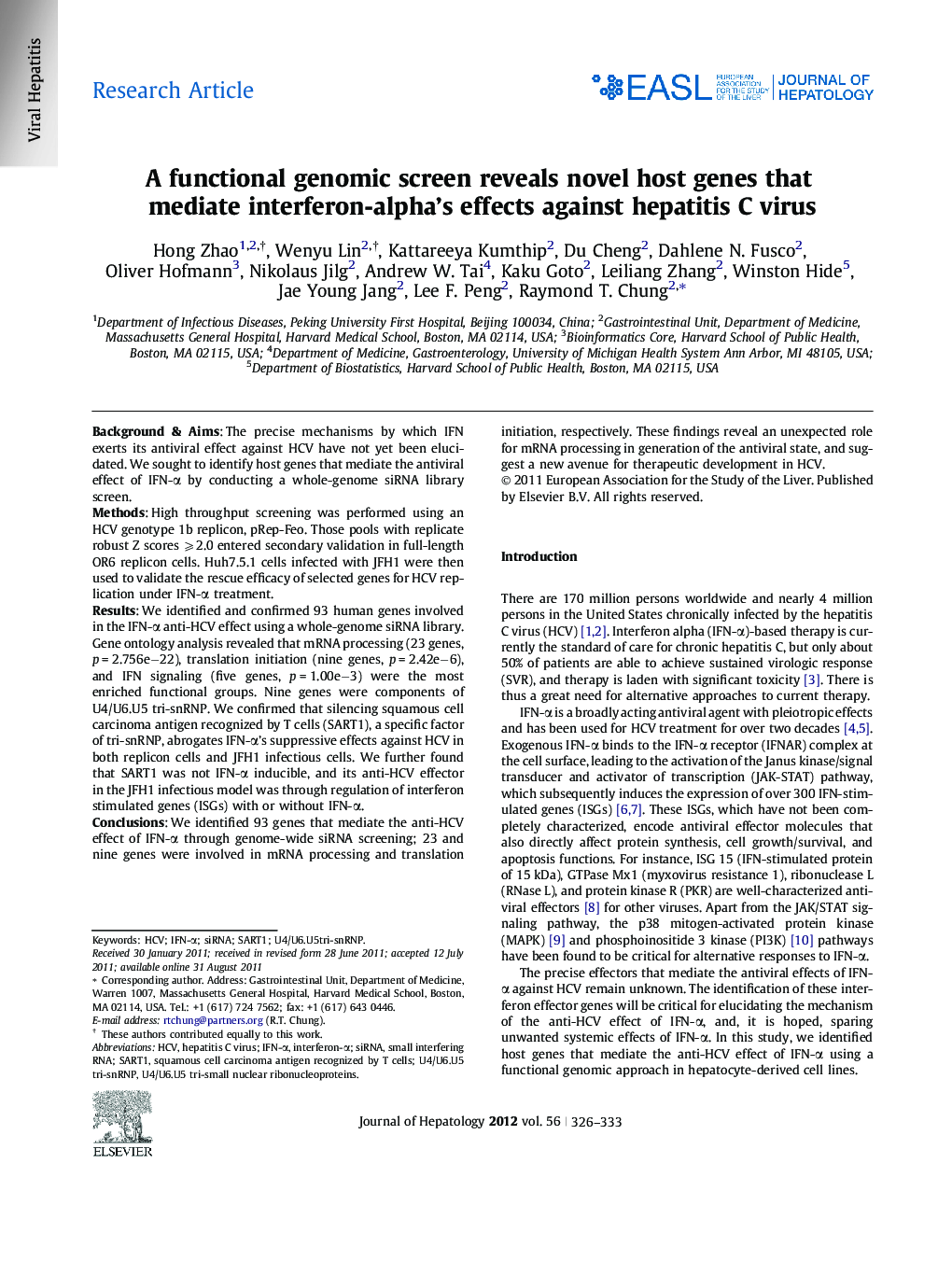| Article ID | Journal | Published Year | Pages | File Type |
|---|---|---|---|---|
| 6107103 | Journal of Hepatology | 2012 | 8 Pages |
Background & AimsThe precise mechanisms by which IFN exerts its antiviral effect against HCV have not yet been elucidated. We sought to identify host genes that mediate the antiviral effect of IFN-α by conducting a whole-genome siRNA library screen.MethodsHigh throughput screening was performed using an HCV genotype 1b replicon, pRep-Feo. Those pools with replicate robust Z scores ⩾2.0 entered secondary validation in full-length OR6 replicon cells. Huh7.5.1 cells infected with JFH1 were then used to validate the rescue efficacy of selected genes for HCV replication under IFN-α treatment.ResultsWe identified and confirmed 93 human genes involved in the IFN-α anti-HCV effect using a whole-genome siRNA library. Gene ontology analysis revealed that mRNA processing (23 genes, p = 2.756eâ22), translation initiation (nine genes, p = 2.42eâ6), and IFN signaling (five genes, p = 1.00eâ3) were the most enriched functional groups. Nine genes were components of U4/U6.U5 tri-snRNP. We confirmed that silencing squamous cell carcinoma antigen recognized by T cells (SART1), a specific factor of tri-snRNP, abrogates IFN-α's suppressive effects against HCV in both replicon cells and JFH1 infectious cells. We further found that SART1 was not IFN-α inducible, and its anti-HCV effector in the JFH1 infectious model was through regulation of interferon stimulated genes (ISGs) with or without IFN-α.ConclusionsWe identified 93 genes that mediate the anti-HCV effect of IFN-α through genome-wide siRNA screening; 23 and nine genes were involved in mRNA processing and translation initiation, respectively. These findings reveal an unexpected role for mRNA processing in generation of the antiviral state, and suggest a new avenue for therapeutic development in HCV.
